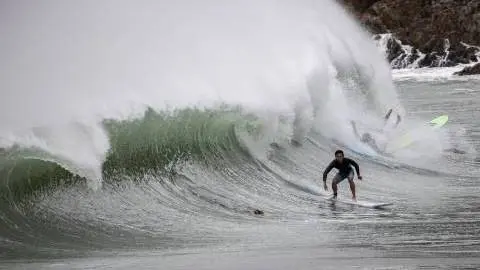ING Monthly: Curve surfing
Until recently, large central banks followed the principle that being behind the curve was less costly than being ahead of it, even as inflation accelerated. That view is now being called into question, leaving bankers in the delicate position of 'surfing the curve' and moving forward gradually without destabilising markets and the global economy
Executive summary
Couch surfing was the mother of all home sharing platforms and has become a permanent feature of everyday travel. For major central banks right now, there's a new game in town: 'curve surfing'.
Until the summer, large central banks followed the principle that being behind the curve was less costly than being ahead of the curve, even as inflation accelerated. In other words, the cost of sticking to very accommodative monetary policy was deemed smaller than the potential cost of any abrupt tightening action, given the high level of uncertainty surrounding growth and inflation. With inflation mainly driven by higher energy prices and a long series of shortages related to the pandemic and the end of lockdowns, taking a rather benign approach to inflation was probably the right thing to do.
While inflation has been higher and stickier than many central bankers had anticipated, most still think it will be transitory. However, the transition period is now expected to be longer than first presumed and with that, the risk of second-round effects and structurally higher inflation is increasing. Inflation expectations - whether survey-based or market-derived - have hardly ever been a good predictor of future inflation. Even so, the recent surge in these measures has become a growing headache for some central bankers and given rise to discussions about whether it is still appropriate to be behind the curve.
Central banks are rarely better at forecasting inflation than markets or economists. After the financial crisis, inflation proved to be almost structurally lower than forecast. In the wake of the pandemic, actual inflation has been higher than expected. This only becomes a real problem if central banks start to lose their grip on inflation amid lasting pressures that are largely beyond their control, just as much of the disinflation of the last 10 years was the result of external structural drivers. At present, there is very little a central bank can do to solve global shortages or to lower energy prices.
Right now, most inflation drivers still look transitory. At the same time, there are increasing risks of a fourth Covid wave, and higher energy prices are denting consumer spending, putting central banks between a rock and a hard place. Doing nothing could be costly, doing too much could also be costly, and in a worst-case scenario even cause a recession. This is why we are now seeing more central banks trying to exit from ultraloose monetary policies. The Federal Reserve made a start this week, the Bank of England said it is likely that rate rises may be needed over coming months, and the European Central Bank could join the tapering bandwagon before the year is out.
Central banks are actually following two different scripts. There is the group going for 'catch-up' moves with rate hikes, such as the BoE, the Reserve Bank of Australia and Bank of Canada, and the group of taperers, prominently led by the Fed and ECB. While hiking rates immediately has a signalling effect and creates space to cut later on, unwinding asset purchases can better target sectors that require less stimulus and can also restrengthen central banks’ credibility as inflation fighters. Two different approaches but one common goal: to 'surf the curve' and gradually move forward without destabilising markets and the global economy.
Dowload our full report for more.
Download
Download report
5 November 2021
ING Monthly: Curve surfing This bundle contains 11 ArticlesThis publication has been prepared by ING solely for information purposes irrespective of a particular user's means, financial situation or investment objectives. The information does not constitute investment recommendation, and nor is it investment, legal or tax advice or an offer or solicitation to purchase or sell any financial instrument. Read more
